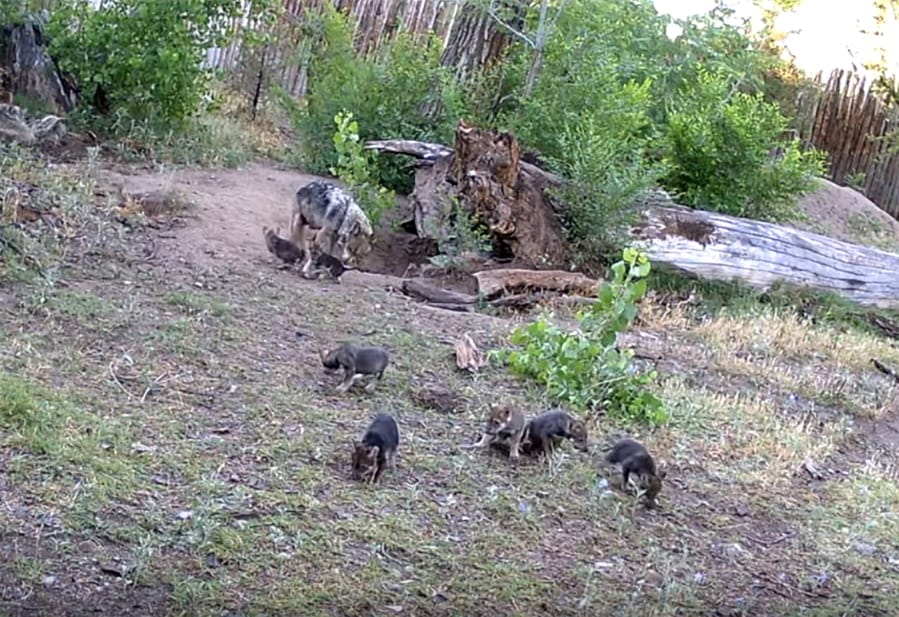ALBUQUERQUE, N.M. — Two endangered Mexican gray wolves housed at the Albuquerque zoo are the proud parents of seven pups, officials announced Tuesday.
The pups recently came out of their den for the first time. Zookeepers have only been able to view the pups by camera so far because the mother is being protective. Whenever possible, the pups will undergo an exam and their sexes will be determined.
The ABQ BioPark is part of a nationwide captive-breeding network that supports the recovery of the endangered predators in the Southwest U.S. The goal of the program is to make the most genetically diverse matches to improve the health of Mexican wolves.
“Every new lobo that we welcome boosts overall survival of wolves in the wild,” zoo manager Lynn Tupa said.



